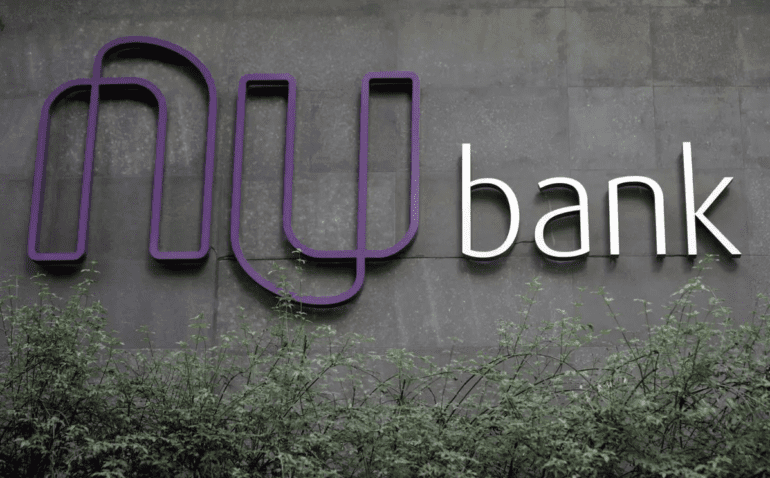Nine months after its IPO with a dual listing on the São Paulo Stock Exchange (B3) and the New York Stock Exchange, Nubank, Latin America’s largest fintech company, announced that it will no longer be a publicly traded company in Brazil.
In practice, the Brazilian Depositary Receipts (BDRs) of the company — certificates representing shares of foreign companies traded in Brazil — are still present at B3 but will now follow the rules of the American market.
The company’s board of directors approved the beginning of a process to discontinue its level III BDR program at B3 to move to level I receipts, in a plan still to be submitted for approval by the Stock Exchange.
In a statement to the market, Nubank said the goal of this process is to “maximize efficiency and minimize redundancies” of being a publicly traded company in more than one jurisdiction. With the move, the company said it would reduce unnecessary duplicate workloads in regulatory requirements.

“Our focus is on improving processes, productivity, and scalability to deliver growth and value to all our stakeholders,” Nubank co-founder Cristina Junqueira said in a public statement.
Goal was to enable NuSocios
According to Pedro Queiroz, an equity specialist at SVN Investimentos, by opting for dual listing in its IPO — both in Brazil and in the U.S. — the company’s goal was to enable one of its most ambitious programs: NuSócios.
With this program, Nubank donated BDRs to some 7.5 million customers in exchange for signing up for the bank’s brokerage, subsequently becoming one of the companies with the most significant number of shareholders on the Brazilian stock exchange.
However, the analyst told Fintech Nexus that Nubank’s exit from the stock market turned out to be a strategy for the company to “protect its liquidity and interrupt a period of poor market performance,” which was mainly tied to the current Brazilian macroeconomic situation.
The move comes after fintech co-founder, and CEO David Vélez expressed dissatisfaction with the view of financial institution analysts in Brazil regarding the company’s shares.
Two weeks ago, in an interview with Reuters, Vélez criticized that some of the analysts in Brazil seem to expect higher profitability from Nubank more immediately but that there are steps to be taken before reaching the expected level.
Brazil underperformed
In recent months, data from the Refinitiv consensus indicated that three of the 17 analysis houses that follow Nubank’s shares have an ‘underperform’ recommendation — all corresponding to the largest banks operating in Brazil: Itaú BBA, Bradesco, and Santander.
“The stock market fell, and Nubank found itself in a moment of necessary cost reduction. Keeping the BDRs in Brazil implies a high cost for the company. Hence, its objective became to avoid low liquidity in the Brazilian market and focus on the American market instead,” Guilherme Zanin, an analyst at investment brokerage Avenue, told Fintech Nexus in an interview. “This is quite deconstructive for the Brazilian capital market because it doesn’t help promote the idea that there is long-term investor confidence in Brazil.”
Regarding the impact of the digital bank’s decision on its investors, Nubank said that those who received the BDR in the NúSócios program could only sell it after one year. Each BDR represents one-sixth of a U.S.-listed stock of the company.
Those with Level III BDRs today will have three options: sell them, convert them into Level I BDRs, or NYSE shares — if they have enough paper and an overseas account. Six Nubank BDRs are equivalent to one Class A share traded on the NYSE.
Environment changed dramatically
As the analyst at Inv Nicolas Merola commented with Fintech Nexus, the environment for fintechs and market conditions have changed dramatically since the bank’s IPO.
Related:
“No digital bank counted on internal factors like the interest rate increase from 2% to 13.75% in such a short period,” said Merola, “This impacted a lot on the results of listed companies, and of all, one of the most affected was Nubank.”
Backed by companies such as Berkshire Hathaway, Tencent Holdings, and Sequoia Capital, Nubank became Latin America’s most valuable listed bank after its very successful IPO, at $41.5 billion, ahead of Brazil’s Itau Unibanco Holding S.A.
But last month, Nubank released the results for the second quarter of this year, recording a loss of $ 29.9 million in the period — a hole worse than expected by the market. According to analysts heard by Bloomberg, the expectation was a net loss in the range of $ 10 million in the period.


